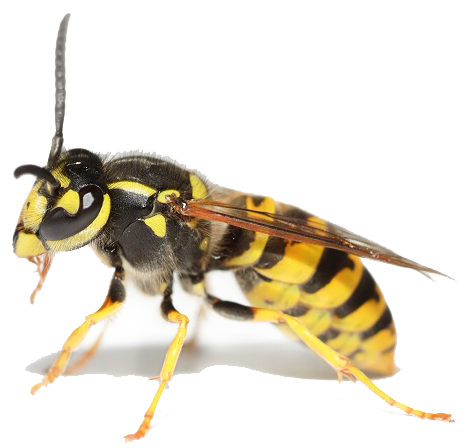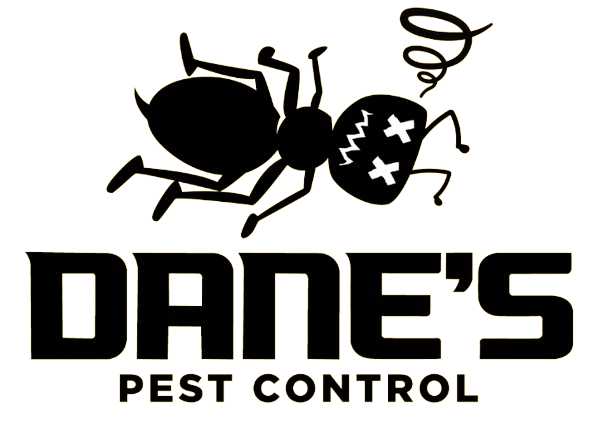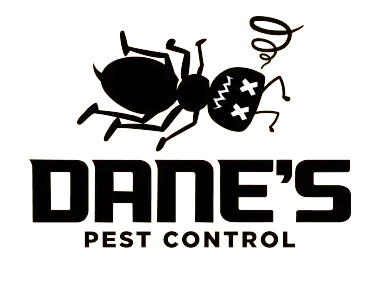Wasp and Hornet Pest Control
starting at $32/ month

Get More Information

we will not share or spam you

Dane’s Pest Control
- Family owned and operated
- Huntsville pest knowledge
- Effective Solutions
- Fast Customer Service
Contact us today!

Huntsville’s Trusted Pest Experts
What Our Customers Are Saying
EXCELLENTBased on 180 reviews Trustindex verifies that the original source of the review is Google.
Trustindex verifies that the original source of the review is Google. Santhanasurya Athmalingam2024-10-04They respond quickly whenever I reach out, and if there’s any sign of pest activity after treatment, they come back without hesitation for extra visits. Great service and highly reliable!Trustindex verifies that the original source of the review is Google.
Santhanasurya Athmalingam2024-10-04They respond quickly whenever I reach out, and if there’s any sign of pest activity after treatment, they come back without hesitation for extra visits. Great service and highly reliable!Trustindex verifies that the original source of the review is Google. Adam Smith2024-10-04I really appreciate Dane and the work he did for me. I had a very big problem with bugs, and after only 2 treatments, I have seen a tremendous decrease in the amount of pests I had. He was very informative and helpful with any questions I had. I would highly recommended their services to anyone dealing with a pest problem. Great price and even better service.Trustindex verifies that the original source of the review is Google.
Adam Smith2024-10-04I really appreciate Dane and the work he did for me. I had a very big problem with bugs, and after only 2 treatments, I have seen a tremendous decrease in the amount of pests I had. He was very informative and helpful with any questions I had. I would highly recommended their services to anyone dealing with a pest problem. Great price and even better service.Trustindex verifies that the original source of the review is Google. Anthony Shane2024-10-04Gave great deal. Did everything they promisedTrustindex verifies that the original source of the review is Google.
Anthony Shane2024-10-04Gave great deal. Did everything they promisedTrustindex verifies that the original source of the review is Google. Laurin Mitchell2024-10-02Highly recommend! Very professional and friendly. Ben will come out whenever you ask him to even in between the quarterly visits!Trustindex verifies that the original source of the review is Google.
Laurin Mitchell2024-10-02Highly recommend! Very professional and friendly. Ben will come out whenever you ask him to even in between the quarterly visits!Trustindex verifies that the original source of the review is Google. Eduardo Gonzalez2024-09-30Ben and his team are extremely professional, reliable, and reasonably priced. Would highly recommend to anymore needing pest control. He is your guy!!Trustindex verifies that the original source of the review is Google.
Eduardo Gonzalez2024-09-30Ben and his team are extremely professional, reliable, and reasonably priced. Would highly recommend to anymore needing pest control. He is your guy!!Trustindex verifies that the original source of the review is Google. Jalyn2024-09-30Ben is very professional and knowledgeable. I had a problem with spiders in my home for a few months. My previous pest control company came out several times and couldn’t get rid of the spiders. I contacted Ben, and he was able to get rid of the problem. I’m extremely satisfied with his services.Trustindex verifies that the original source of the review is Google.
Jalyn2024-09-30Ben is very professional and knowledgeable. I had a problem with spiders in my home for a few months. My previous pest control company came out several times and couldn’t get rid of the spiders. I contacted Ben, and he was able to get rid of the problem. I’m extremely satisfied with his services.Trustindex verifies that the original source of the review is Google. Madi Brooks2024-09-25I called and he fit me in same day!! Issues were resolved within just days and anytime I see a bug I call him and he is there!!😭 Reliable and nice gentleman, he gets the job done. I have family who also use Danes pest control, would definitely recommend!Trustindex verifies that the original source of the review is Google.
Madi Brooks2024-09-25I called and he fit me in same day!! Issues were resolved within just days and anytime I see a bug I call him and he is there!!😭 Reliable and nice gentleman, he gets the job done. I have family who also use Danes pest control, would definitely recommend!Trustindex verifies that the original source of the review is Google. Ethan Wilson2024-09-24They have been great. Super responsive and fixed my pest problem quickly.
Ethan Wilson2024-09-24They have been great. Super responsive and fixed my pest problem quickly.
Learn More Information Here

Get rid of Wasp & Hornets today by calling our Huntsville Wasp & Hornets Experts
Call Us at 256 795-6590 or contact us online now!
Wasps and Hornets can be both unsettling and pose potential threats to residents in Huntsville. Encountering a wasp nest or being stung by certain species can result in serious health issues. Huntsville is home to various types of wasps and hornets, each exhibiting distinct behaviors and nesting preferences. These stinging insects can establish their nests in various indoor and outdoor spaces, making it essential to address wasp-related concerns promptly. If you’re facing wasp issues, don’t hesitate to contact us for effective solutions and peace of mind!
Wasp & Hornets Species In Huntsville AL
Types of Wasps and Hornets in Huntsville
Yellow Jacket:
Yellow Jackets are the most common species of vespid in Huntsville Alabama, they are easily recognizable by their vibrant yellow and black coloring. These slender insects are extremely aggressive and frequently attack humans and pets. These wasps thrive from late summer to early fall, they are drawn to many different types of foods but seem to favor sugar. Yellow Jacket nests can be found in various locations, ranging from the eaves or attics of homes to burrowed holes in yards. Yellow jacket stings can be extremely painful and can lead to allergic reactions in many people.
Bald-Faced Hornet:
Bald-faced hornets are very similar in appearance to yellow jackets except instead of yellow and black they are white and black and about half an inch long. Bald Faced Hornets are predators of many different insects including wasps, bees, flies, and many others. These hornets can become highly agitated when near their nests, delivering repeated stings. Their nests are easily identified by their grayish paper material. Built above ground, these nests are commonly found in trees, shrubs, under eaves, or on the sides of buildings. Swift extermination is crucial as Bald-Faced Hornets can establish large and aggressive colonies.
Black and Yellow Mud Dauber:
Mud Daubers have a solid black body with yellow stripes and legs. Mud Daubers typically do not sting humans or pets unless forced. They make nests made of mud that are commonly found on the side of brick homes and other areas protected from rainfall. Mud Daubers are common predators of spiders and other insects in which they feed to their young.
Paper Wasp:
One of the most common species in Huntsville the paper wasp is identified by their honeycomb nests that are often found under porches, eves, and almost anywhere that is protected from the weather. Paper Wasps have a painful sting but are less aggressive than other wasp species. Beneficial in controlling certain plant-destroying caterpillars, they play a helpful ecological role.
Red Wasp:
The Red Wasp is about an inch-long, with a bright red body, dark wings, and a potent sting. Found abundantly in Alabama, especially during the summertime, they are more aggressive than other paper wasp species. Their nests, constructed from plant and wood fibers, form a papery, honeycomb-like structure and can be found in trees, under hangs, and bridges.
Preventing Wasps and Hornets
Certain species are drawn to sweet substances like sugary foods and soda. If dining outdoors, ensure thorough cleanup afterward, diligently wiping away any spills. When feeding pets outside, refrain from leaving extra food out. Also make sure trash cans are stored inside the garage or are sealed tight.
Shift woodpiles away from the structure and promptly address decaying leaves, as both may attract wasps and hornets who are looking for food. If you have a flower garden, it’s advisable to plant it at a distance from your home, as flowers serve as a natural food source for insects that attract wasps and hornets.
Examine your home for any gaps in the siding, as these could be attractive to wasps. Seal up any holes, as even small openings can allow wasps and hornets to enter. Weatherstrip cracks and crevices, including those around windows and exterior doors, to further fortify your defenses against these stinging insects.


